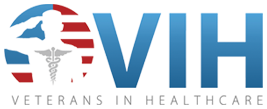
- 78 active jobs (view)
- www.mountnittany.org
Description
Director Diagnostic and Ancillary Services
Job Description
POSITION SUMMARY
The Director of Diagnostic and Ancillary Services is primarily responsible for overseeing the operations of a portfolio of departments with deep collaboration with the Mount Nittany Physician Group, Medical Center Operation leaders and Medical Staff. Responsible for ongoing strategies and tactics to secure market share, capture, and growth for the following departments: Laboratory, Imaging, Rehabilitation, Cardiology and Respiratory services.
The Director of Diagnostic and Ancillary Services has responsibility for operational implementation and oversight of day-to-day operations of assigned departments to ensure sites are managed in a consistent manner that embraces Mount Nittany Health’s patient-centered service excellence and clinical quality & safety standards while demonstrating strong financial stewardship through the maximal optimization of efficient operational processes.
- The Director assists the Chief Ancillary Services Officer with
- Strategic planning for the diagnostic and ancillary services workforce;
- Establishing standards for patient care practice and maintain authority, accountability and responsibility for diagnostic and ancillary services;
- Diagnostic and ancillary services budgeting and planning.
LEADERSHIP VALUES
The MNH Leadership Values we are striving to emulate:
- Respect, appreciation and caring for all-positive outlook
- Initiative, achievement oriented, drive for excellence and continuous improvement; perseverance and ability to see the big picture
- Teamwork and support for others; interdependence and commitment to the collective; system success as opposed to individual achievement or credit
- Open, respectful, candid communication; handles conflicts and differing points of view directly; doesn’t shy away from difficult issues or conversations
- Stewardship of resources and passion for efficiency
- Ownership of actions and results focused
- Resilient; adaptable to change; perseveres in the midst of challenges
- Courage
Responsibilities
ESSENTIAL FUNCTIONS
- Leadership
- Foundational thinking skills: critical analysis to issues, provide vision, address ideas, viewpoints that should be given consideration, maintain curiosity, etc.
- Communication and Relationship Building
- Effective communication skills: oral and written
- Relationship management: build collaborative relationships, create trusting environment, effective conflict resolution skills.
- Influencing behaviors: create shared vision; facilitate consensus building; present view non-threatening/judgmental; achieve outcomes through engagement of others.
- Inclusivity and diversity
- Partners with providers: build credibility as a champion for patient care and quality.
- Collaboration with education institutions: to promote and facilitate a productive learning experience.
- Business Skills
- Financial management skills: Develop and manage operational budgets. Plan and evaluate capital budget request with ROI if necessary; interpret financial statements and utilize the analysis to make improvements and efficiencies.
- Human resource management skills: labor management skills; participate in workforce planning, recruitment, & retention; collaborate with human resource colleagues for workforce management issues; and promote a healthy and safe work environments.
- Strategic management skills: ability to create/participate in setting operational objectives, goals, and interventions required to determined outcomes; evaluate goals; and create a business case/ROI.
- Information management & technology skills: use of technology to support clinical and financial performance.
- Healthcare Environment Knowledge
- Clinical Practice Knowledge: demonstrate knowledge of clinical scope of responsibility; maintain compliance with accreditation, regulatory and quality agency; adhere to professional standards and licensure requirements; and ensure policy and procedures aligned with all compliance standards
- Models of care/work design: maintain current knowledge in patient care delivery systems across the continuum; assess/modify/redesign/evaluate delivery of care models when necessary; and participate in facilities projects/designs/remodeling
- Evidence-based practice/Outcomes: utilize and analyzing sources of evidence in decision making both clinical and leadership; and monitor and address trends in data.
- Patient & Employee Safety: support a Just Culture (non-punitive) reporting and evaluation of reported or identified concerns utilizing patient safety science.
- Performance Improvement/Metrics: articulate organizational and cancer services performance improvement goals; embrace the identification of issues, measures of success, analyze root cases, improvement efforts and controls for sustainability.
- Risk Management: identify risk; report; correct and medicate when necessary; and ensure compliance by all with all established standards.
- Professionalism
- Personal & professional accountability: hold self and others accountable for mutual professional and organizational expectations/outcomes; promote and demonstrate lifelong learning activities in self and others; and role model standards of professionalism.
- Career planning: coach others; develop personal and professional career plans and help facilitate that in others; solicit feedback on strengths and weakness; and act on the feedback.
- Ethics: hold self and others accountable ethical standards and practice
- Advocacy: involve others in decisions that impact their work; advocate for safe high quality patient care in service to the community.
NON-ESSENTIAL FUNCTIONS
Performs related and miscellaneous duties as assigned.
Qualifications
MINIMUM REQUIREMENTS
Education:
1) Bachelor’s degree in a Nursing, Healthcare Administration, Business Administration required.
2) Master’s Degree in Nursing, Healthcare Administration, Business Administration or equivalent preparation preferred.
Experience:
1) 7+ years of progressive responsibly healthcare leadership experience preferred.
2) Previous leadership experience of similar scope preferred.
Knowledge, Skills, Abilities:
1) Proven leadership skills, highly developed interpersonal skills, refined judgment and a strong record of achievement required.
2) Functions effectively as a liaison among staff, physicians, hospital administration, and ancillary departments.
3) Uses tact, sensitivity, sound judgment, and a professional attitude constantly.
4) Consistently demonstrates maturity for accountability or job performance.
License/Certification/Registration:
1) Within three months from the hire/transfer date, completes Crisis Prevention Institute’s Nonviolent Crisis Intervention (CPI NCI) training and renews every 2 years thereafter.
SUPERVISION RECEIVED
Receives minimal supervision from the Chief Ancillary Services Officer.
SUPERVISION GIVEN
Supervises the leaders of assigned departments and administrative and support personnel.
